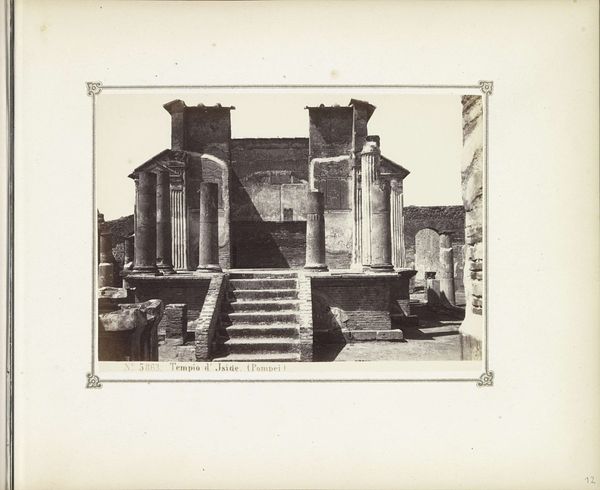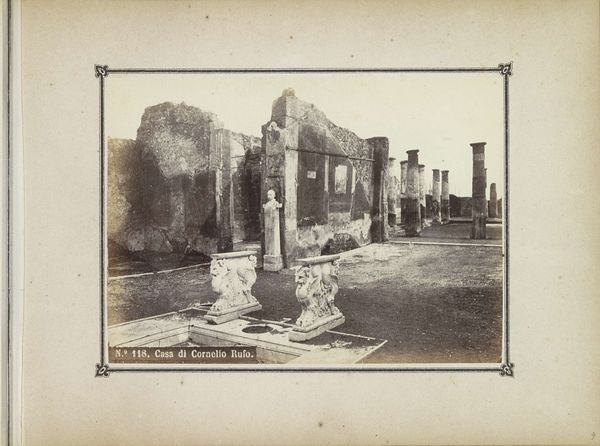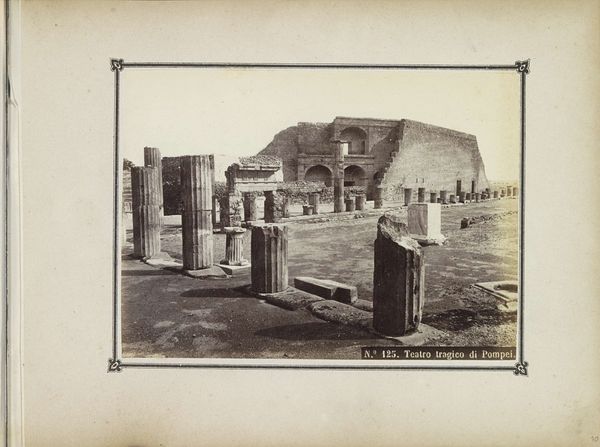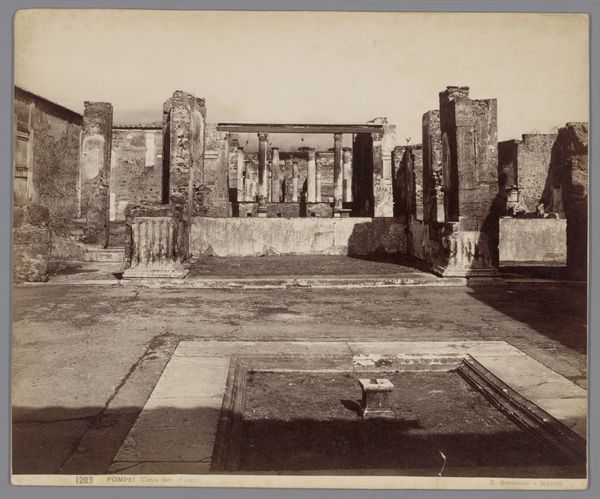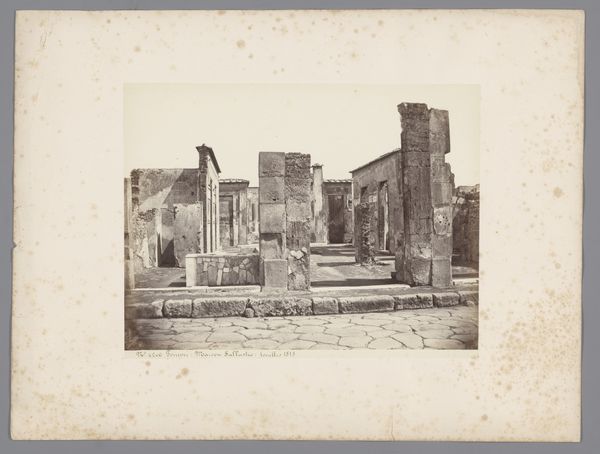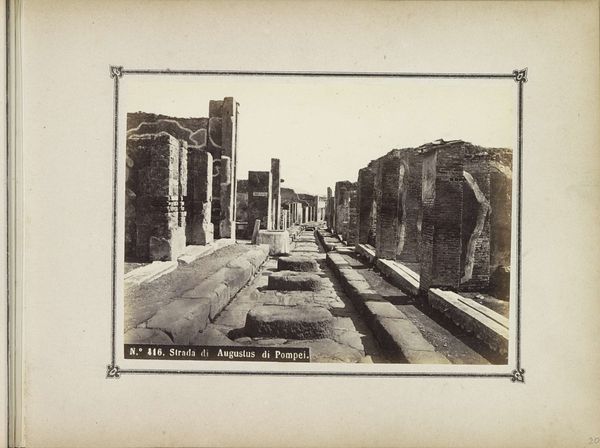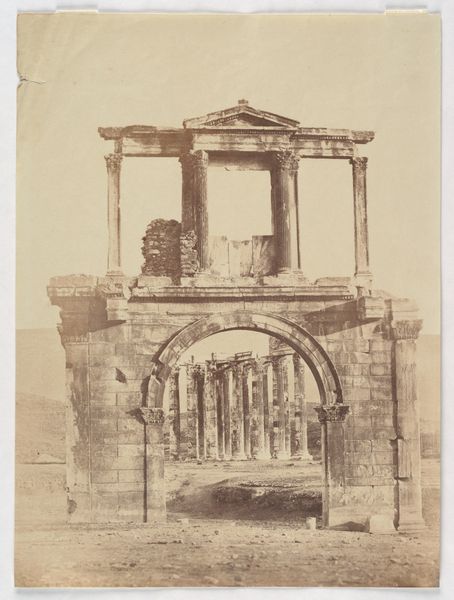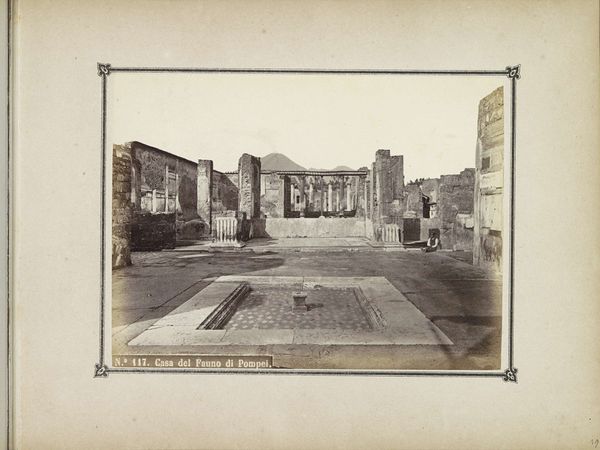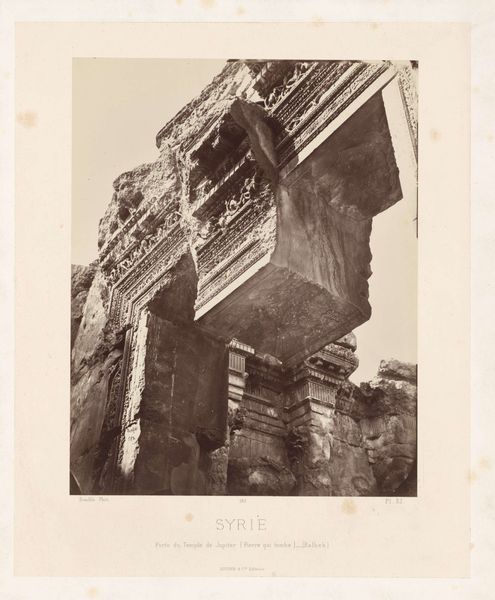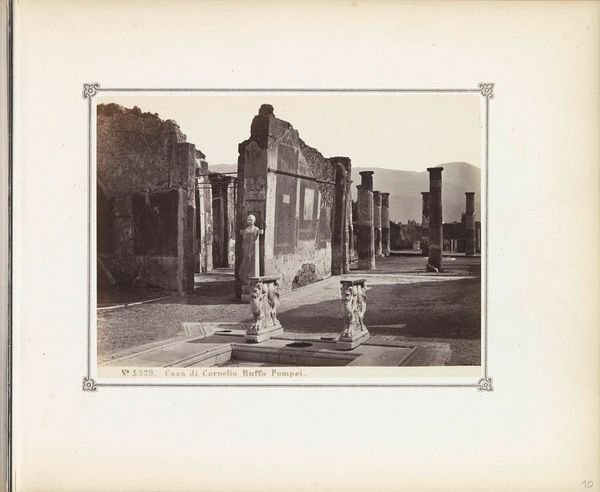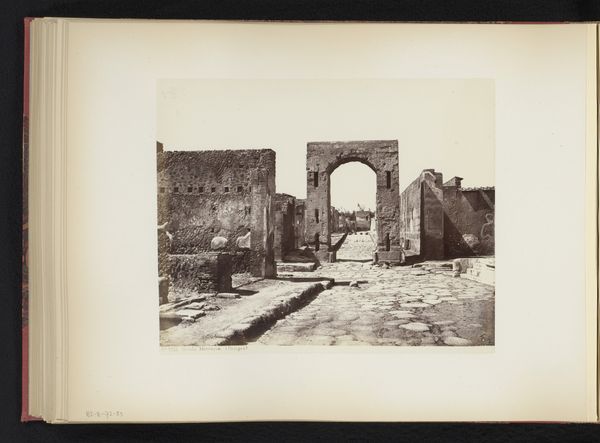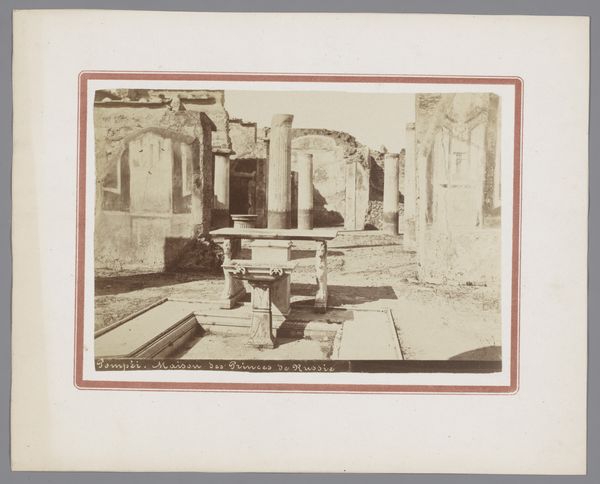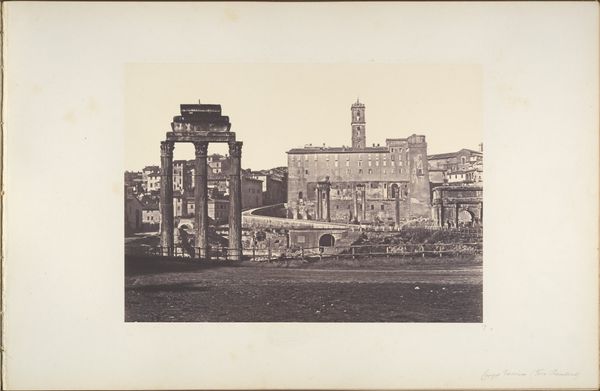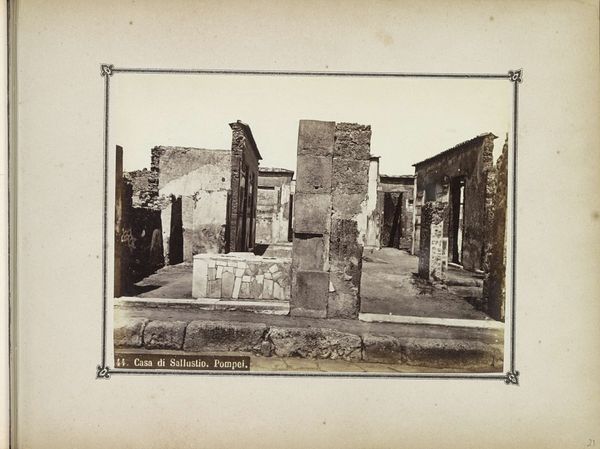
#
pencil drawn
#
aged paper
#
toned paper
#
light pencil work
#
pencil sketch
#
charcoal drawing
#
charcoal art
#
pencil drawing
#
pencil art
#
watercolor
Dimensions: height 106 mm, width 141 mm
Copyright: Rijks Museum: Open Domain
Roberto Rive made this albumen print of the Restanten van de Isistempel in Pompeï sometime in the 19th century. Photography emerged in the nineteenth century as a groundbreaking technique for capturing and documenting the world. Its material basis lies in the chemical reactions of light-sensitive materials, manipulated through a laborious process. Here, Rive frames the decaying temple with remarkable precision, each column and crumbling wall rendered with clarity. The albumen printing process, which involves coating paper with egg white, gives the image a warm tonality and a smooth surface. Yet this aesthetic quality came at a cost, demanding the skilled labor of photographers and assistants in the darkroom. Rive’s photograph serves not only as a historical record but also as a testament to the era’s fascination with antiquity and the burgeoning culture of tourism. The production of such images became intertwined with wider social and economic forces, reflecting the commodification of culture and the growing accessibility of distant lands.
Comments
No comments
Be the first to comment and join the conversation on the ultimate creative platform.
